Blog
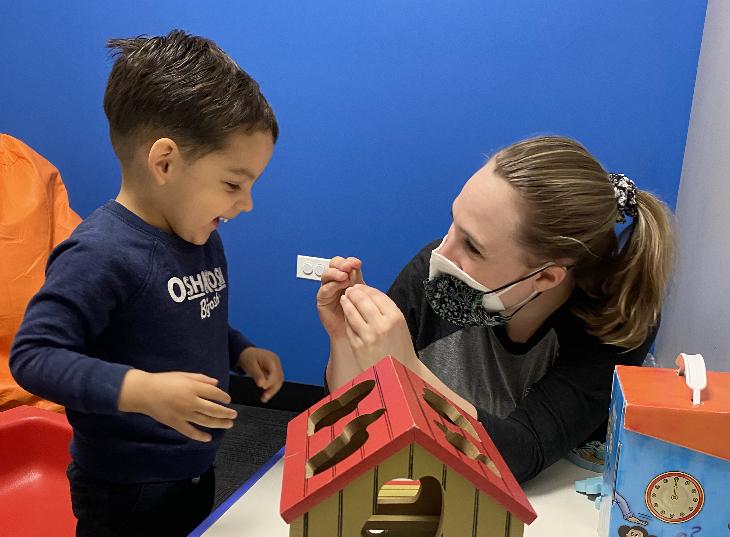
My toddler struggles with talking. Is speech therapy an option?
It’s never too early to look into speech therapy for your toddler.
The earlier you can catch any signs of lack of development in certain areas, the better. And when you do catch those early signs, it is important to get them treated right away as leaving them untreated can make it harder to treat in the future.
It can also continue to stunt your child’s speech development. Getting your child started with therapy at an early age can help them to develop at a typical rate.
There are certain benchmarks that your child should reach as they progress through the first years of their life. Westside has a tool to guide you.
Each child develops at their own pace, but it is still important to monitor the progress they are making.
What can cause a speech problem in a toddler?
As a parent, it may be tough to recognize and understand that your child might need a little extra support. That’s why we’re here.
For example, it is estimated that 5%-8% of children have a speech/and or language disorder. The two commonly overlap, but most children will have a primary speech or a primary language disorder.
Speech delays can be caused by a variety of things including an oral impairment, such as problems with the tongue and the palate (roof of the mouth), or a short frenulum (the fold beneath the tongue), which limits tongue movement causing the child to speak improperly.
Many children develop speech delays because of oral-motor problems, where the child has difficulty coordinating their lips and tongue to make speech sounds.
A speech delay can also be caused by a hearing problem, because the child is unable to recognize, understand and imitate the sounds.
A language delay is when a child has difficulty understanding and/or using spoken language. This can include: saying or learning first words, putting words together to make sentences, building a vocabulary.
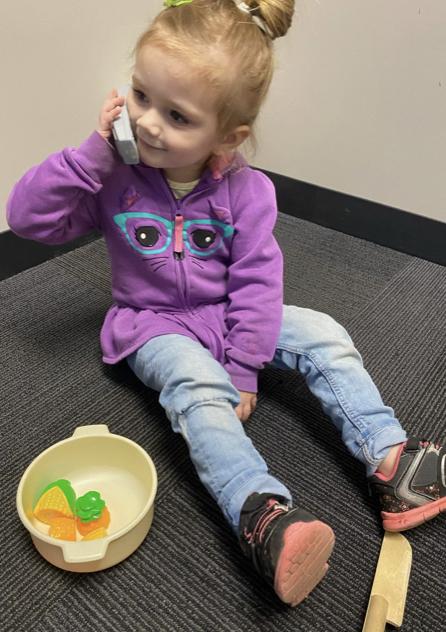
What should I be looking for when considering speech therapy?
A child with a possible delay can show signs as early as 3 months old. It may seem too early to see a speech therapist, but it is never too early to monitor those signs.
Here a few benchmarks you can refer to when considering speech therapy. It should be still noted that children develop at different paces and these are not mandatory to be met:
12 months:
- Reacts when spoken to
- Use some gestures (waving, pointing, nodding)
These signs show that your baby understands communication and has some basic skills to communicate with you.
24 months:
- Spoken their first word
- Can string together a few different words (one more, play toy, more drink)
- Should be able to vocalize their needs and not rely on only gestures
- Should speak independently and not just when you tell them to
3 years +:
- At this point your toddler speaks “a lot” of words
- Your toddler can pronounce letters like: “t,” “d,” and “n” and a few other consonants
- By 5 years old, your child can say most speech sounds
- You can understand 75% of what your child are saying
- By 4 years old, people who don’t know the child should be mostly understood
If you notice your child is not meeting some of the above mentioned benchmarks, it wouldn’t hurt to get a FREE screening at Westside, or talk to your physician about speech therapy.
Not everything is going to mean you NEED speech therapy, but it never hurts to get evaluated. Waiting to take action until your child is 5-6, it may make it tougher for them to catch up with their peers.
For example, think about how your child says things like “grandma” or “sister.” Are they saying it correctly or “gwamma” and “thista.” As they get older, those could be a couple signs that they may need a little extra help, and speech therapy may be an option for you.
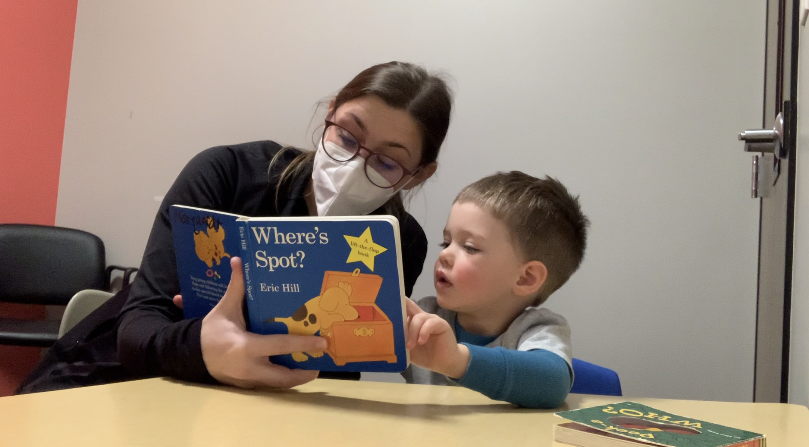
What can I do to help my toddler at home with speech therapy?
There is plenty you can do at home to help your toddler out. If they have an articulation disorder (not pronouncing words, sounds or letters correctly), simply practice with them to say a list of words.
If your child has a language delay/disorder (limited talking, not talking at all, does not put more than two words together), you can imitate the sounds they do make. Treat it like a game and your child might start to imitate the words/sounds you say.
There’s countless ways you can help. Remember your child is still a child that will grow at their own pace, so try not to compare much to other children, but if they have an extended phase of “baby talk,” it might be something that needs extra help to improve.
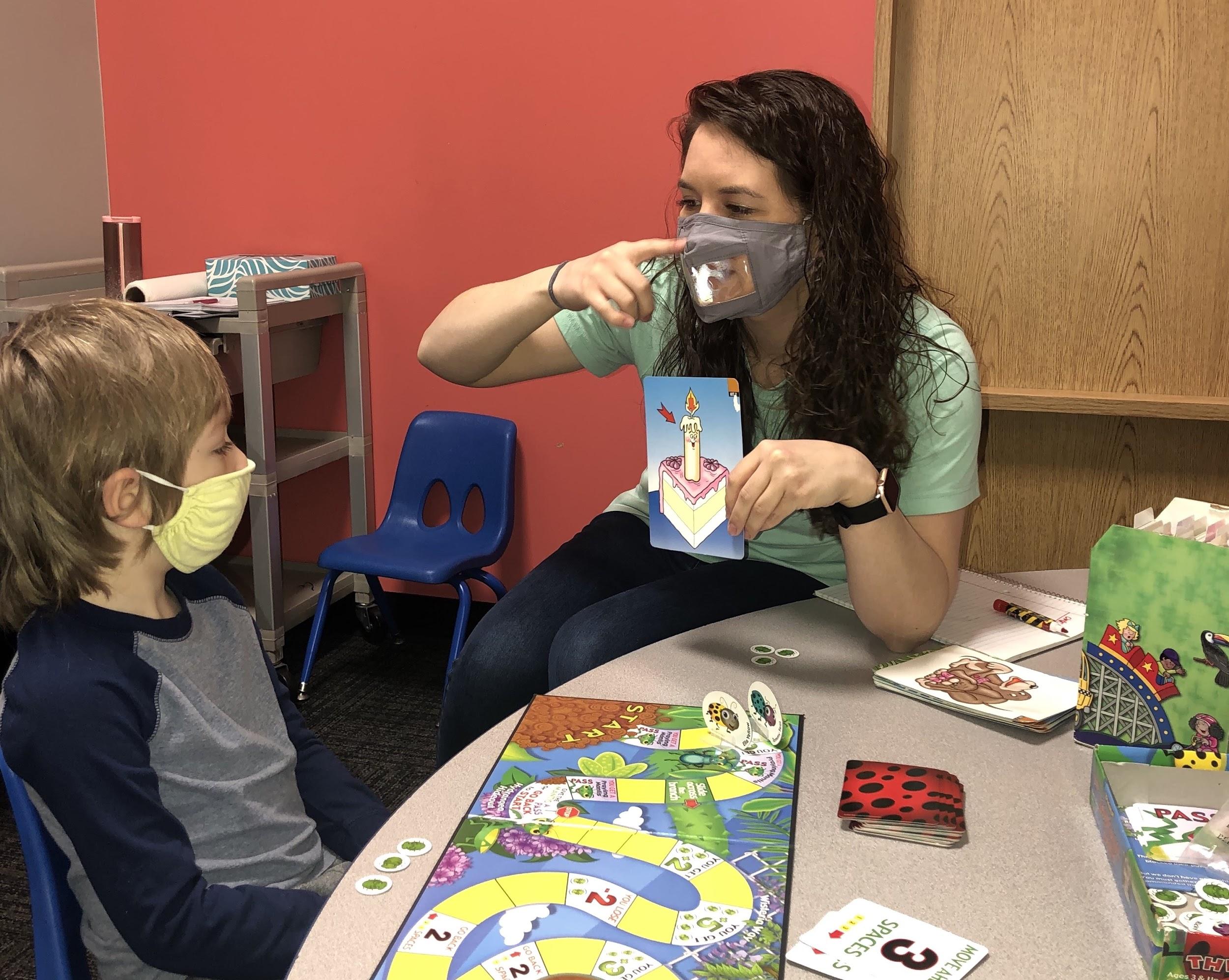
Starting Speech Therapy at Westside
If your child needs therapy, Westside can help you and your child make positive growth in their development. Therapy can allow them to grow alongside their peers and have effective communication in social environments.
There are two ways you can get started.
If you are ready to get an evaluation for ongoing therapy right away, that is also an option. A script from your doctor is needed for that.
If you are not ready to jump straight into an evaluation, a screening might be right for you. We can help determine if a full evaluation assessment is necessary. You do not need a script from your doctor.
Therapists at Westside are dedicated to parent education. A child may spend one day a week at therapy and the rest at home. Even if ongoing therapy is not for you, parent education can still be supportive.
During ongoing therapy, parents will be trained, updated and can sit in on therapy sessions with their child.
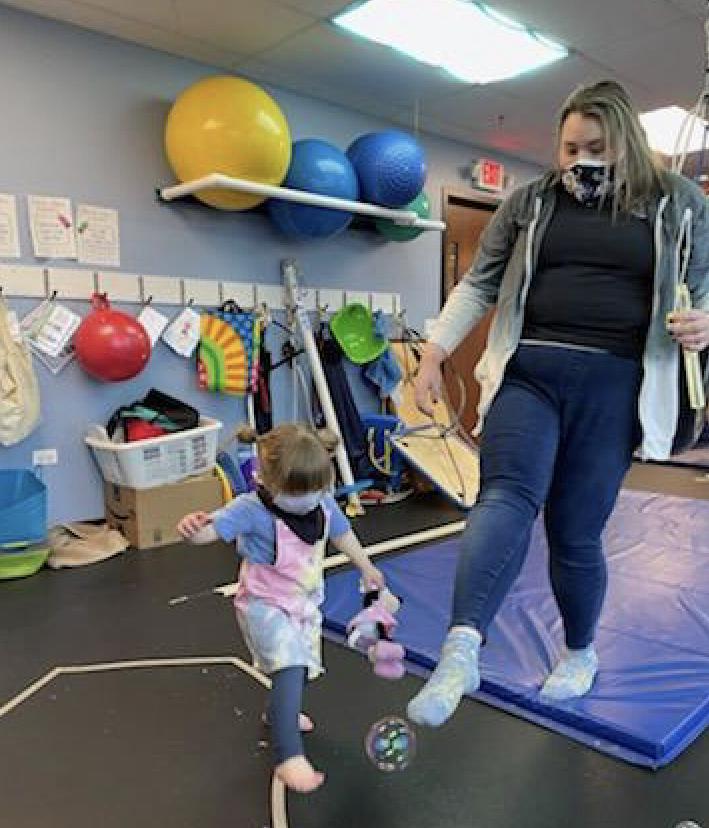
We always start the session with playful and fun exercises to get the toddler engaged. Westside therapists take an expert-play directed approach to elicit the techniques. From an outside perspective, it looks like we’re just having fun, but we’re really working hard on a child’s communication and language skills.
Westside therapists also use excited, energetic voices with the toddlers. If we’re getting ready to say a word, therapists will use excited voices to say: READY…SET…GO! We also practice imitative techniques.
The pandemic has increased the number of parents seeking speech therapy for their children. Many kids have missed out on opportunities for incidental learning in social environments. Many families have started speech therapy in a clinic because of the extra socialization opportunities.
It could also be something as simple as going to a zoo and seeing animals and saying their names. We’ve had families tell us that we’re the first people their child has seen other than family in a year.
Your first step to improving your child’s speech development is a click away.
To get started at Westside, contact us at 815-469-1500, or browse our website!




